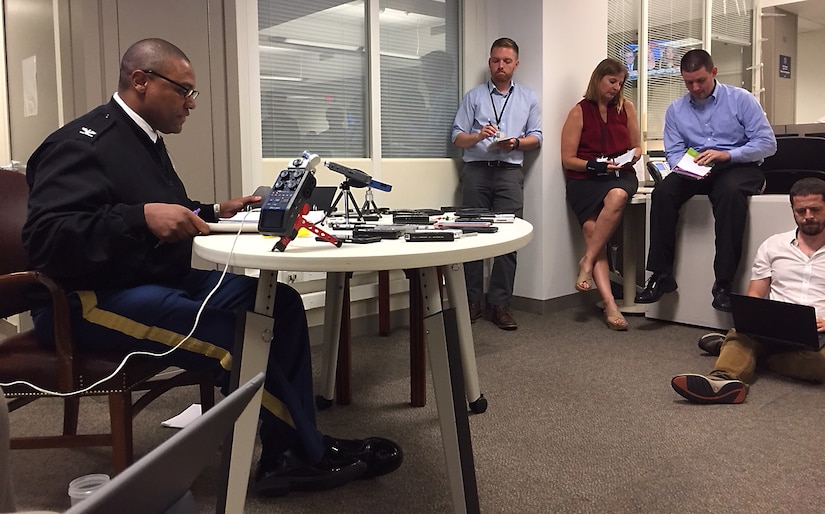By Jim Garamone, DoD News, Defense Media Activity
WASHINGTON -- Deployed service members may have to ditch
their fitness trackers in response to a new memo from Deputy Defense Secretary
Patrick M. Shanahan prohibiting the use of GPS functions in deployed locations.
This includes physical fitness aids, applications in phones
that track locations, and other devices and apps that pinpoint and track the
location of individuals.
“Effective immediately, Defense Department personnel are
prohibited from using geolocation features and functionality on government and
nongovernment-issued devices, applications and services while in locations
designated as operational areas,” Pentagon spokesman Army Col. Robert Manning
III told Pentagon reporters today.
Deployed personnel are in “operational areas,” and
commanders will make a determination on other areas where this policy may
apply.
The market for these devices has exploded over the past few
years, with many service members incorporating them into their workout
routines. They use the devices and applications to track their pace, running
routes, calories burned and more. These devices then store the information and
upload it to central servers where it can be shared with third parties. That
information can present enemies with information on military operations.
Using GPS Devices Pose Risk
“The rapidly evolving market of devices, applications and
services with geolocation capabilities presents a significant risk to the
Department of Defense personnel on and off duty, and to our military operations
globally,” Manning said.
These Global Positioning System capabilities can expose
personal information, locations, routines and numbers of DoD personnel. Their
use in overseas locations “potentially create unintended security consequences
and increased risk to the joint force and mission,” Manning said.
Personal phones and other portable devices also contain apps
that rely on GPS technology, and they will be affected. Commanders will be
responsible for implementing the policy, and they will be allowed to make
exceptions only after conducting a thorough risk assessment.
Security is at the heart of this guidance. DoD seeking a
balanced way that allows for legitimate official and personal uses of
geolocation technology that does not impact security.
Manning said the department will continue to study the risk
associated with these devices and change the policy as needed.








No comments:
Post a Comment